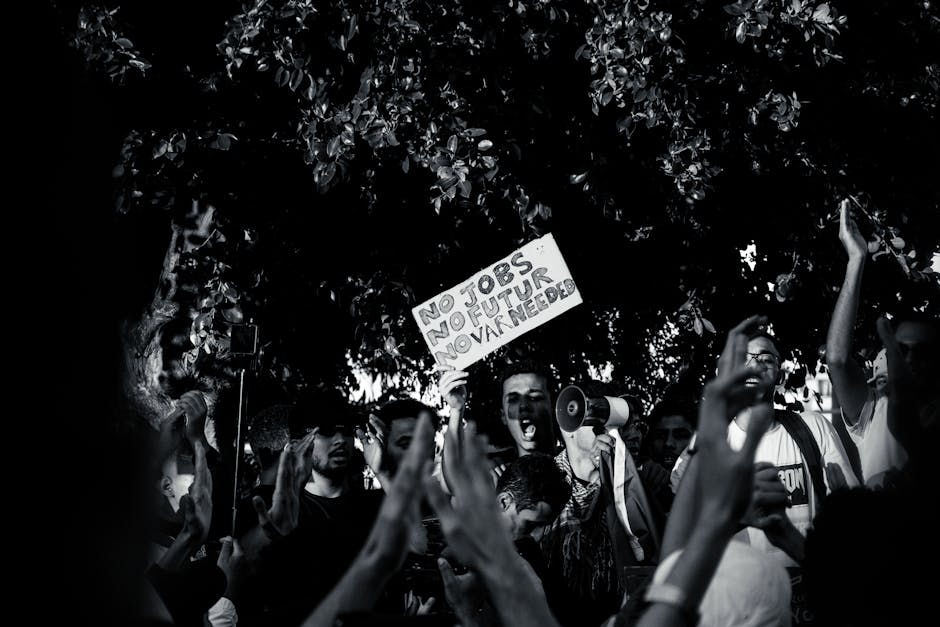No products in the cart.
Gen Z’s Burnout Crisis: A Call to Action for HR
Nearly half of Gen Z is experiencing burnout. HR departments must step up to address this crisis with effective strategies.
New York, USA — Nearly 50% of Generation Z workers report feeling burnt out, raising urgent questions about workplace culture and the role of human resources (HR) in fostering employee well-being. A recent survey by Gallup indicates that 48% of Gen Z employees experience burnout, a striking figure that underscores an alarming trend in the modern workforce.
As this demographic, aged 16 to 26, enters the workforce in unprecedented numbers, their mental health challenges are becoming a focal point for employers. The implications are profound: companies that fail to address employee burnout risk not only losing talent but also facing decreased productivity and higher turnover rates. This situation calls for immediate and innovative responses from HR departments.

The roots of Gen Z’s burnout are multifaceted. Many young workers cite overwhelming workloads, lack of support, and a disconnect between work and personal life as primary contributors. According to a study by LinkedIn, 60% of Gen Z employees feel that their jobs are demanding too much from them, leading to increased stress and disengagement. This demographic is particularly sensitive to workplace culture, valuing environments that prioritize mental health and work-life balance.
 Communication
CommunicationThe End of Email: A Shift in Communication Dynamics
As email loses ground to messaging apps, we explore how this shift affects productivity and workplace dynamics.
Moreover, the digital landscape complicates matters. Gen Z is the first generation to grow up with social media and constant connectivity. This has blurred the lines between work and personal life, making it difficult for them to disconnect. A Harvard Business Review report found that 62% of Gen Z workers check their emails outside of work hours, a habit that exacerbates feelings of burnout.
A Harvard Business Review report found that 62% of Gen Z workers check their emails outside of work hours, a habit that exacerbates feelings of burnout.
HR’s Role in Addressing Burnout
HR departments are uniquely positioned to tackle this crisis. They can implement policies and programs that not only recognize the signs of burnout but also actively work to mitigate its effects. For instance, flexible work arrangements have emerged as a critical strategy. A 2023 survey by FlexJobs found that 82% of Gen Z workers prefer jobs that offer remote or hybrid work options. By allowing employees to tailor their work environments, companies can enhance job satisfaction and reduce burnout.
Additionally, mental health resources are essential. Organizations like Headspace for Work and Ginger provide platforms for companies to offer mental health support. Implementing these tools can create a culture where employees feel safe discussing their mental health needs. Furthermore, training managers to recognize burnout symptoms can lead to early intervention and support.
Creating a Supportive Culture
A supportive workplace culture is vital for retaining talent. Transparency and open communication are key components. Regular check-ins, feedback loops, and employee surveys can help HR leaders understand the evolving needs of their workforce. Involving employees in decision-making processes fosters a sense of ownership and community, which can significantly alleviate feelings of isolation and stress.
 Career Advice
Career AdviceNavigating Passion and Paycheck: A Modern Dilemma
This article dives into the critical balance between pursuing passion and securing a paycheck, offering actionable frameworks for decision-making.
Read More →Moreover, organizations should emphasize recognition and appreciation. Acknowledging employees’ hard work and achievements can boost morale and counteract the negative effects of burnout. Simple measures, such as shout-outs in team meetings or employee of the month programs, can make a significant difference in how employees perceive their contributions.
The Future of Work for Gen Z
Looking ahead, the workplace landscape is likely to continue evolving. As more companies recognize the critical importance of mental health, we may see a shift towards more holistic employee support models. This shift will not only benefit Gen Z but also future generations entering the workforce.
Acknowledging employees’ hard work and achievements can boost morale and counteract the negative effects of burnout.
In conclusion, addressing burnout among Gen Z is not just a moral imperative; it is a business necessity. Companies that prioritize employee well-being will not only enhance productivity but also cultivate a loyal workforce. As the workplace continues to adapt, innovative HR strategies will be crucial for navigating this challenge and fostering a culture of resilience and support.











